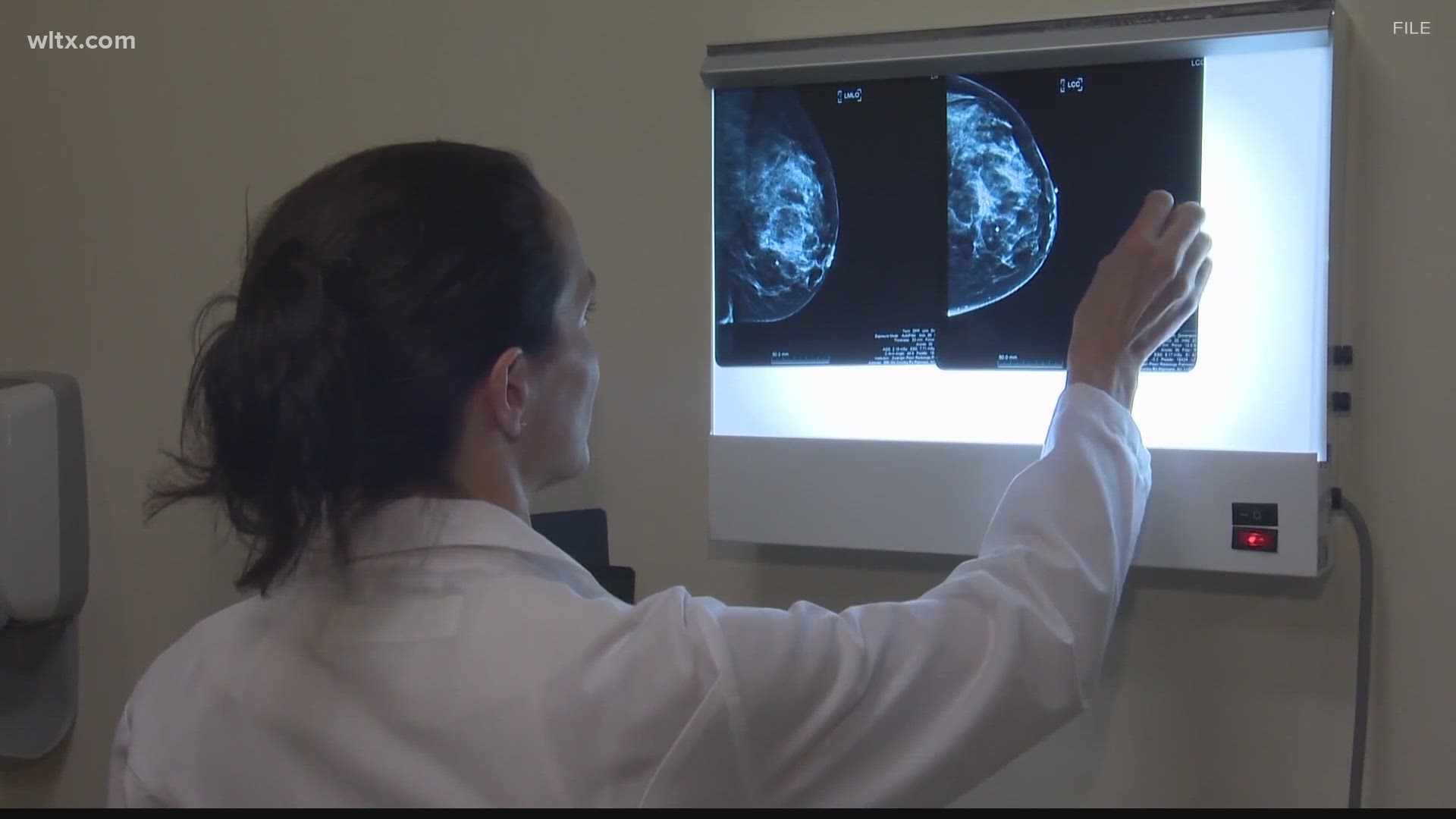SUMTER, S.C. — In South Carolina, more than 4,000 women are diagnosed with breast cancer every year, according to Prisma Health. It’s why Tuomey Hospital in Sumter is raising awareness within the local community with Wednesday’s Lunch and Learn.
“It's just important for the community, for Sumter community, for all women nationwide, really,” Betty Ann Taylor, a certified surgical technologist, explains.
Taylor works at Tuomey, where she recently made nearly 90 surgical caps for her coworkers in honor of Breast Cancer Awareness Month.
“It makes me smile to see everybody in their hats,” Taylor shares. “Breast cancer has touched my family unfortunately through a lot of family members: great-grandmother, about five aunts and even my sister. So it's very important to me.”
Taylor isn’t alone. That’s why Dr. Henry Moses spoke to the Sumter community on Wednesday for a free Lunch and Learn. Dozens of women showed up to discuss screening, risk factors and advances in medical treatment of breast cancer.
“Just to see that they’re interested in taking care of themselves, getting educated and hopefully spreading that message to family and friends to just kind of start that ripple effect,” Dr. Moses says.
A ripple effect that Jennifer Williams, who performs mammograms, sees when patients come in for screening.
“To me, mammograms have become much more talked about in the last several years, and just cancer in general. And more people are aware of breast cancer and the sooner they have their mammograms, the sooner we catch it, the better the outcomes are,” Williams shares. “You see and hear more people talking about having mammograms and what their results were, so it encourages other people to come and have it done also.”
Breast cancer affects about one in every eight women, according to Prisma Health, which is why Williams says events like the Lunch and Learn are important to connect with community members to start that conversation.
“It does make people more aware,” Williams explains. “And you may have learned something that you didn't know or something that you heard that you take back to somebody else that you know, and that may make them come on and have their mammograms done also.”
The key to breast cancer prevention is early detection, Dr. Moses says.
“Really, we don't ever want to find anything that we can feel,” he details. “We want to find it when it just shows up on the mammogram and so that's really the key with the early detection is that screening mammogram.”
Dr. Moses tells News 19 that you should start with screening mammograms at age 40 and get them every year.
When it comes to getting that preventative scan, Williams says she believes there’s a common misconception.
“The biggest complaint with a mammogram is that everyone thinks that it hurts,” Williams shares. “For me personally when I have my mammogram it does not hurt, but a lot of people are very surprised when they come in for their first one and it’s not near what they thought it was going to be from what everyone has told them.”
“It sounds terrible. I mean, it does,” Mammography Manager Angie Gilley adds. “And because you have to endure it each year and you’re in compression and stuff like that. But it is not that uncomfortable. And there’s other ways that you can make it less uncomfortable: the time of the month that you come and stuff like that.”
For the women that are diagnosed with breast cancer, “there's nothing but optimism in terms of treatment,” Moses says.
“We’ve made so many successes, so many advances and continue to make those. It’s just like almost like we were seeing new drugs come out, new therapies that are just so very effective. And just very optimistic about the future for women that have breast cancer and hopefully in the future, we won't be talking about this. We'll have it relegated to the history books,” Moses continues. “When [patients] come to see me, it’s one of the darkest days in their life. And you have to sit down and explain to them the diagnosis that they've got breast cancer. And I have the perspective of seeing all these women that start there, but I know where they're going. They’re going to get through this. They're going to be finished with the treatments out there living and enjoying life. And that's my expectation and my encouragement to them.”

